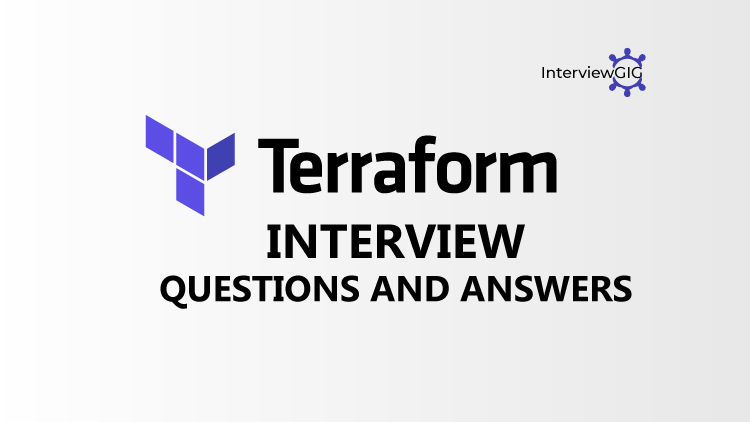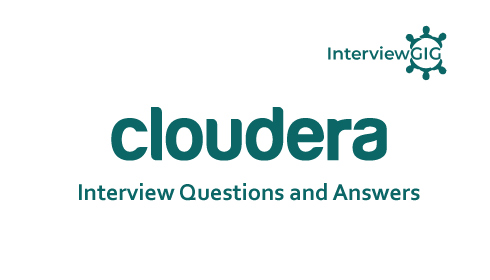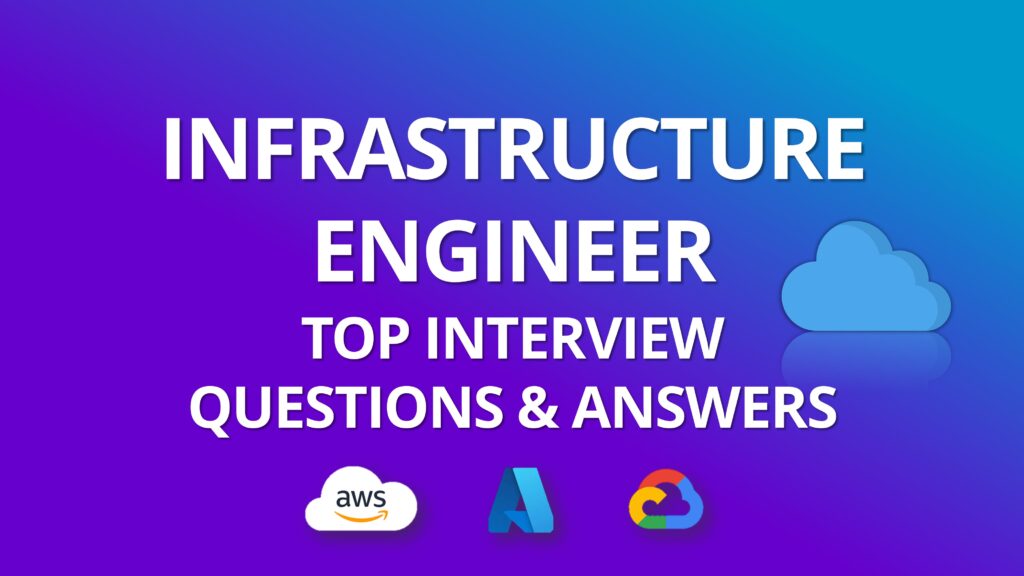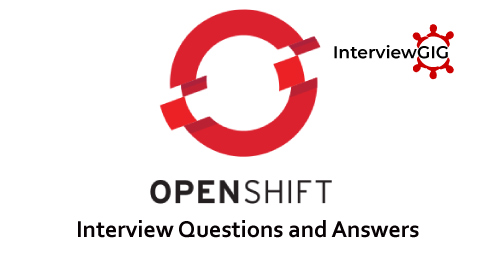AWS Developer Interview Questions and Answers for beginners.
Amazon Web Services (AWS) is a subsidiary of Amazon.com that provides on-demand cloud computing platforms to individuals, companies and governments, on a paid subscription basis with a free-tier option available for 12 months. The technology allows subscribers to have at their disposal a full-fledged virtual cluster of computers, available all the time, through the internet.
AWS’s version of virtual computers have most of the attributes of a real computer including hardware (CPU(s) & GPU(s) for processing, local/RAM memory, hard-disk/SSD storage); a choice of operating systems; networking; and pre-loaded application software such as web servers, databases, CRM, etc. Each AWS system also virtualizes its console I/O (keyboard, display, and mouse), allowing AWS subscribers to connect to their AWS system using a modern browser.
The browser acts as a window into the virtual computer, letting subscribers log-in, configure and use their virtual systems just as they would a real physical computer. They can choose to deploy their AWS systems to provide internet-based services for their own and their customers’ benefit.
Amazon Elastic Compute Cloud (EC2) provides virtual servers — called instances — for compute capacity. The EC2 service offers dozens of instance types with varying capacities and sizes, tailored to specific workload types and applications, such as memory-intensive and accelerated-computing jobs. AWS also provides an Auto Scaling tool to dynamically scale capacity to maintain instance health and performance.
The Amazon EC2 Container Service and EC2 Container Registry enable customers to work with Docker containers and images on the AWS platform. A developer can also use AWS Lambda for serverless functions that automatically run code for applications and services, as well as AWS Elastic Beanstalk for PaaS. AWS also includes Amazon Lightsail, which provides virtual private servers, and AWS Batch, which processes a series of jobs.
Amazon Simple Storage Service (S3) provides scalable object storage for data backup, archival and analytics. An IT professional stores data and files as S3 objects — which can range up to 5 GB — inside S3 buckets to keep them organized. A business can save money with S3 through its Infrequent Access storage tier or use Amazon Glacier for long-term cold storage.
AWS provides managed database services through its Amazon Relational Database Service, which includes options for Oracle, SQL Server, PostgreSQL, MySQL, MariaDB and a proprietary high-performance database called Amazon Aurora. AWS offers managed NoSQL databases through Amazon Dynamo DB.
It also provides a range of services for cloud security, including AWS Identity and Access Management (IAM), which allows admins to define and manage user access to resources. An admin can also create a user directory with Amazon Cloud Directory, or connect cloud resources to an existing Microsoft Active Directory with the AWS Directory Service.
Additionally, AWS Organizations enables a business to establish and manage policies for multiple AWS accounts.
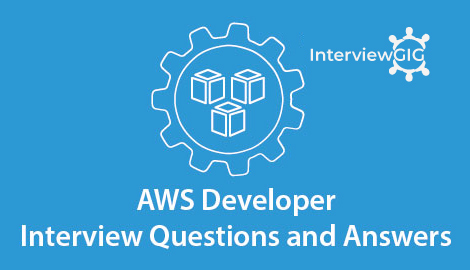
What is AWS?
Amazon Web Services (AWS) is a comprehensive, evolving cloud computing platform provided by Amazon. It provides a mix of infrastructure as a service (IaaS), platform as a service (PaaS) and packaged software as a service (SaaS) offerings.
(Or)
AWS is a platform to provide secure cloud services, database storage, offerings to compute power, content delivery, and other services to help business level and develop.
What is Cloud Computing?
Cloud computing is the on-demand delivery of compute power, database storage, applications, and other IT resources through a cloud services platform via the internet with pay-as-you-go pricing.
What is cache?
In computing, a cache is a high-speed data storage layer which stores a subset of data, typically transient in nature, so that future requests for that data are served up faster than is possible by accessing the data’s primary storage location. Caching allows you to efficiently reuse previously retrieved or computed data. The data in a cache is generally stored in fast access hardware such as RAM (Random-access memory) and may also be used in correlation with a software component.
A cache’s primary purpose is to increase data retrieval performance by reducing the need to access the underlying slower storage layer. Trading off capacity for speed, a cache typically stores a subset of data transiently, in contrast to databases whose data is usually complete and durable.
What are the layers of Cloud Computing?
There are four layers of the cloud computing
- PaaS – Platform as a Service
- IaaS – Infrastructure as a Service
- SaaS – Software as a Service.
- Daas- Desktop as a Service
Explain IaaS and PaaS and SaaS and DaaS?
IaaS – IaaS stands for Infrastructure as a Service. It provides users with the capability to Provision processing, storage, and network connectivity on demand. Using this service Model, the customers can develop their own applications on these resources.
PaaS – PaaS stands for Platform as a Service. Here, the service provider provides various services like databases, queues, workflow engines, e-mails, etc. to their customers. The customer can then use these components for building their own applications. The services, availability of resources and data backup are handled by the service provider that helps the customers to focus more on their application’s functionality.
SaaS – SaaS stands for Software as a Service. As the name suggests, here the third-party providers provide end-user applications to their customers with some administrative capability at the application level, such as the ability to create and manage their users. Also some level of customizability is possible such as the customers can use their own corporate logos, colors, etc.
Daas – Desktop as a Service (DaaS) is a desktop virtualization service that is hosted on the cloud, so users can access their virtual desktops and applications wherever they go, using whichever device they need. DaaS is purchased through a subscription and offers a multitenancy environment.
With a DaaS, the Virtual Desktop Infrastructure (VDI) is deployed and managed by a service provider, which means that the responsibilities of maintaining security, upgrades, data backup and storage are outsourced to your service provider.
What is Amazon EC2 service?
Amazon EC2 (Amazon Elastic Compute Cloud) is an Amazon web service that provides resizable (scalable) computing capacity in the cloud. You can use Amazon EC2 to launch as many virtual servers you need. In Amazon EC2 you can configure security and networking as well as manage storage. Amazon EC2 service also helps in obtaining and configuring capacity using minimal friction.
What is Amazon Machine Image (AMI)?
An Amazon Machine Image (AMI) is a template that contains a software configuration (for example, an operating system, an application server, and applications). From an AMI, we launch an instance, which is a copy of the AMI running as a virtual server in the cloud. We can even launch multiple instances of an AMI.
What is the relation between Instance and AMI?
We can launch different types of instances from a single AMI. An instance type essentially determines the hardware of the host computer used for your instance. Each instance type offers different compute and memory capabilities.
After we launch an instance, it looks like a traditional host, and we can interact with it as we would do with any computer. We have complete control of our instances; we can use sudo to run commands that require root privileges.
Explain storage for Amazon EC2 instance?
Amazon EC2 provides many data storage options for your instances. Each option has a unique combination of performance and durability. These storages can be used independently or in combination to suit your requirements.
There are mainly four types of storages provided by AWS.
Amazon EBS: Its durable, block-level storage volumes can attached in running Amazon EC2 instance. The Amazon EBS volume persists independently from the running life of an Amazon EC2 instance. After an EBS volume is attached to an instance, you can use it like any other physical hard drive. Amazon EBS encryption feature supports encryption feature.
Amazon EC2 Instance Store: Storage disk that is attached to the host computer is referred to as instance store. The instance storage provides temporary block-level storage for Amazon EC2 instances. The data on an instance store volume persists only during the life of the associated Amazon EC2 instance; if you stop or terminate an instance, any data on instance store volumes is lost.
Amazon S3: Amazon S3 provides access to reliable and inexpensive data storage infrastructure. It is designed to make web-scale computing easier by enabling you to store and retrieve any amount of data, at any time, from within Amazon EC2 or anywhere on the web.
Adding Storage: Every time you launch an instance from an AMI, a root storage device is created for that instance. The root storage device contains all the information necessary to boot the instance. You can specify storage volumes in addition to the root device volume when you create an AMI or launch an instance using block device mapping.
Can you Elastic Block Storage?
EBS is a virtualized SAN or storage area network. That means it is RAID storage to start with so it’s redundant and fault tolerant. If disks die in that RAID you don’t lose data. Great! It is also virtualized, so you can provision and allocate storage, and attach it to your server with various API calls. No calling the storage expert and asking him or her to run specialized commands from the hardware vendor.
What is AWS Storage Gateway?
It is used to provide seamless integration with data security features between your on premise software appliance and AWS Cloud.
Is it possible to scale an Amazon instance vertically? How?
Yes. This is an incredible characteristic of cloud virtualization and AWS. Spin up is a huge case when compared to the one which you are running with. Let up the instance and separate the root EBS volume from this server and remove. Next, stop your live instance, remove its root volume.
Note down the distinctive device ID and attach root volume to your new server and start it again. This is the way to scaling vertically in place.
What are the best practices for Security in Amazon EC2?
There are several best practices to secure Amazon EC2. A few of them are given below:
- Use AWS Identity and Access Management (IAM) to control access to your AWS resources.
- Restrict access by only allowing trusted hosts or networks to access ports on your instance.
- Review the rules in your security groups regularly, and ensure that you apply the principle of least
- Privilege – only open up permissions that you require.
- Disable password-based logins for instances launched from your AMI. Passwords can be found or cracked, and are a security risk.
How is stopping and terminating an instance different from each other?
Starting, stopping and terminating are the three states in an EC2 instance, let’s discuss them in detail:
- Stopping and Starting an instance: When an instance is stopped, the instance performs a normal shutdown and then transitions to a stopped state. All of its Amazon EBS volumes remain attached, and you can start the instance again at a later time. You are not charged for additional instance hours while the instance is in a stopped state.
- Terminating an instance: When an instance is terminated, the instance performs a normal shutdown, then the attached Amazon EBS volumes are deleted unless the volume’s deleteOnTermination attribute is set to false. The instance itself is also deleted, and you can’t start the instance again at a later time.
How is a Spot instance different from an On-Demand instance or Reserved Instance?
First of all, let’s understand that Spot Instance, On-Demand instance and Reserved Instances are all models for pricing. Moving along, spot instances provide the ability for customers to purchase compute capacity with no upfront commitment, at hourly rates usually lower than the On-Demand rate in each region. Spot instances are just like bidding, the bidding price is called Spot Price.
The Spot Price fluctuates based on supply and demand for instances, but customers will never pay more than the maximum price they have specified. If the Spot Price moves higher than a customer’s maximum price, the customer’s EC2 instance will be shut down automatically. But the reverse is not true, if the Spot prices come down again, your EC2 instance will not be launched automatically, one has to do that manually.
In Spot and On demand instance, there is no commitment for the duration from the user side, however in reserved instances one has to stick to the time period that he has chosen.
Read More : Terraform Interview Questions
How can you speed up data transfer in Snowball?
The data transfer can be increased in the following way:
- By performing multiple copy operations at one time i.e. if the workstation is powerful enough, you can initiate multiple cp commands each from different terminals, on the same Snowball device.
- Copying from multiple workstations to the same snowball.
- Transferring large files or by creating a batch of small file, this will reduce the encryption overhead.
- Eliminating unnecessary hops i.e. make a setup where the source machine(s) and the snowball are the only machines active on the switch being used, this can hugely improve performance.
What is auto-scaling?
Auto- scaling is one of the remarkable features of AWS where it permits you to arrange and robotically stipulation and spin up fresh examples without the requirement for your involvement. This can be achieved by setting brinks and metrics to watch. If those entrances are overcome, a fresh example of your selection will be configured, spun up and copied into the weight planner collection.
What are lifecycle hooks used for in Auto Scaling?
Auto Scaling allows you to suspend and then resume one or more of the Auto Scaling processes in your Auto Scaling group. This can be very useful when you want to investigate a configuration problem or other issue with your web application, and then make changes to your application, without triggering the Auto Scaling process.
What is SimpleDB?
It is a structured data store that supports indexing and data queries to both EC2 and S3.
How can you send request to Amazon S3?
You can send request by using the REST API or the AWS SDK wrapper libraries that wrap the underlying Amazon S3 REST API.
How many buckets can be create in AWS by default?
By default, 100 buckets can be created.
What is AWS Lambda?
AWS Lambda is a compute service that lets you run code in the AWS Cloud without provisioning or managing servers.
What is the importance of buffer in Amazon Web Services?
An Elastic Load Balancer ensures that the incoming traffic is distributed optimally across various AWS instances. A buffer will synchronize different components and makes the arrangement additional elastic to a burst of load or traffic. The components are prone to work in an unstable way of receiving and processing the requests.
The buffer creates the equilibrium linking various apparatus and crafts them effort at the identical rate to supply more rapid services.
Name the various layers of the cloud architecture?
There are 5 layers in the cloud architecture
- CC- Cluster Controller
- SC- Storage Controller
- CLC- Cloud Controller
- NC- Node Controller
- Walrus
How the processes start, stop and terminate works?
Starting and stopping of an instance: If an instance gets stopped or ended, the instance functions a usual power cut and then change over to a clogged position. You can establish the case afterward since all the EBS volumes of Amazon remain attached. If an instance is in stopping state, then you will not get charged for additional instance.
Finishing the instance: If an instance gets terminated it tends to perform a typical blackout, so the EBS volumes which are attached will get removed except the volume’s deleteOnTermination characteristic is set to zero. In such cases, the instance will get removed and cannot set it up afterward.
How can you Send Request To Amazon S3?
Amazon S3 is a REST service, you can send request by using the REST API or the AWS SDK wrapper libraries that wrap the underlying Amazon S3 REST API.
What is the difference between Amazon S3 and Ec2?
The difference between EC2 and Amazon S3 is that:
EC2:
- It is a cloud web service used for hosting your application
- It is like a huge computer machine which can run either Linux or Windows and can handle application like PHP, Python, Apache or any databases.
S3:
- It is a data storage system where any amount of data can be stored
- It has a REST interface and uses secure HMAC-SHA1 authentication keys.
What is a T2 instance?
T2 instances accrue CPU Credits when they are idle, and use CPU credits when they are active. T2 instances are a good choice for workloads that don’t use the full CPU often or consistently, but occasionally need to burst (e.g. web servers, developer environments and databases).
What is a VirtualCPU Amazon?
A VCPU stands for virtual central processing unit. One or more vCPUs are assigned to every Virtual Machine (VM) within a cloud environment. Each vCPU is seen as a single physical CPU core by the VM’s operating system. Amazon EC2, AWS, CPU, Group Blog Posts, Infrastructure, performance, processor affinity, SysAdmin, Technical Blog.
Some months ago, Amazon Web Services changed the way they measure CPU capacity on their EC2 compute platform. In addition to the old ECUs, there is a new unit to measure compute capacity vCPUs.
What is the difference between Scalability and Elasticity?
- Scalability is the ability of a system to increase its hardware resources to handle the increase in demand. It can be done by increasing the hardware specifications or increasing the processing nodes.
- Elasticity is the ability of a system to handle increase in the workload by adding additional hardware resources when the demand increases (same as scaling) but also rolling back the scaled resources, when the resources are no longer needed. This is particularly helpful in Cloud environments, where a pay per use model is followed.
How to Use Amazon SQS?
Amazon SQS (Simple Queue Service) is a message passing mechanism that is used for communication between different connectors that are connected with each other. It also acts as a communicator between various components of Amazon. It keeps all the different functional components together. This functionality helps different components to be loosely coupled, and provide an architecture that is more failure resilient system.
What is Amazon Aurora?
It is a relational database engine that combines the speed and reliability of high-end commercial databases and the cost effectiveness and simplicity of open-source databases.
What is Amazon RDS?
Amazon RDS is a managed relational database service which does routine database tasks in 6 familiar databases like Amazon Aurora, MySQL, MariaDB, Oracle, Microsoft SQL Server, and PostgreSQL. To know more, please refer our RDS AWS Blog.
What is Amazon DynamoDB?
It is a fully managed No-SQL database service. It is known for extremely low latencies and scalability.
What is different between Amazon RDS, Dynamo DB and Redshift?
- Amazon RDS is a database management service for relational databases, it manages patching, upgrading, backing up of data etc. of databases for you without your intervention. RDS is a Db management service for structured data only.
- Dynamo DB, on the other hand, is a NoSQL database service, NoSQL deals with unstructured data.
- Redshift, is an entirely different service, it is a data warehouse product and is used in data analysis.
What is AWS Identity and Access Management (IAM)?
It is an AWS service that helps you control access to your AWS resources for your users.
What is configuration management?
Configuration management has been around for a long time in web operations and systems administration. Yet the cultural popularity of it has been limited. Most systems administrators configure machines as software was developed before version control – that is manually making changes on servers. Each server can then and usually is slightly different.
Troubleshooting though, is straightforward as you login to the box and operate on it directly. Configuration management brings a large automation tool in the picture, managing servers like strings of a puppet. This forces standardization, best practices, and reproducibility as all configs are versioned and managed. It also introduces a new way of working which is the biggest hurdle to its adoption.
Define NoSQL?
NoSQL is a term used to describe high-performance, non-relational databases. this databases utilize a variety of data models, graph, including document , key-value, and columnar. this databases are widely recognized for ease of development, scalable performance, high availability, and resilience. Below are several resources to help you get started using NoSQL databases.
Define Devops?
DevOps is the combination of cultural philosophies, practices, and tools that increases an organization’s ability to deliver applications and services at high velocity: evolving and improving products at a faster pace than organizations using traditional software development and infrastructure management processes.
This speed enables organizations to better serve their customers and compete more effectively in the market.


